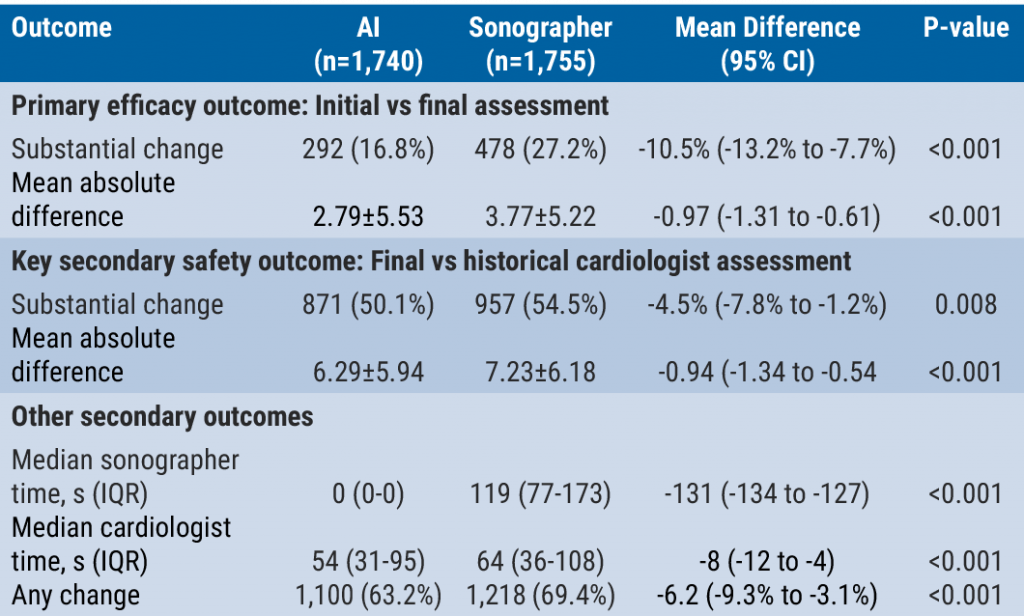https://doi.org/10.55788/48d2d809
Milvexian is a small molecule inhibitor that binds activated factor XI with high affinity and selectivity and may reduce the risk of stroke when added to antiplatelet drugs without significant bleeding. Because genetic variants known to reduce factor XI levels are associated with reduced risk for ischaemic stroke but are not associated with increased intracranial bleeding, the rationale behind the AXIOMATIC-SSP trial (NCT03766581) was to target factor XI.
In the trial, presented by Dr Mukul Sharma (McMaster University, Canada), participants with a mild-to-moderate acute non-lacunar ischaemic stroke or transient ischaemic attack (TIA) (n=2,366) received dual antiplatelet therapy (75 mg clopidogrel daily for the first 21 days and 100 mg aspirin for 90 days) and were randomised to 1 of 5 doses of milvexian or placebo for 90 days [1]. The primary efficacy endpoint was the composite of ischaemic stroke or incident infarct on brain MRI. Major bleeding was the safety endpoint.
The primary efficacy endpoint was not different between milvexian and placebo. Milvexian was associated with a numerically lower risk for clinical ischaemic stroke at all doses except 200 mg twice daily, with doses from 25 to 100 mg twice daily showing an approximately 30% relative risk reduction versus placebo (5.5% for placebo; 4.6% for 25 mg once daily; 3.8% for 25 mg twice daily; 4.0% for 50 mg twice daily; 3.5% for 100 mg twice daily; but 7.7% for 200 mg twice daily).
Major bleeding event rates were similar to placebo (0.6%; 95% CI 0.2–1.5) for milvexian 25 mg once daily (0.6%; 95% CI 0.1–2.2)and twice daily (0.6%; 95% CI 0.1–2.3) but was moderately increased in the 50 mg twice daily (1.5%; 95% CI 0.5–3.6), 100 mg twice daily (1.6%; 95% CI 0.5–3.8), and 200 mg twice daily (1.5%; 95% CI 0.5–3.4) arms. Dr Sharma pointed out that “most major bleeding episodes were gastrointestinal and manageable. There was no increase in severe bleeding or symptomatic intracranial haemorrhage versus placebo, and no fatal bleeding occurred in any arm of the study.”
- Sharma M, et al. AXIOMATIC-SSP: Antithrombotic treatment with factor XIa inhibition to Optimize Management of Acute Thromboembolic events for Secondary Stroke Prevention. Hot Line Session 5, ESC Congress 2022, Barcelona, Spain, 26–29 August.
Copyright ©2022 Medicom Medical Publishers
Posted on
Previous Article
« Evolving evidence for P2Y12 inhibition in chronic coronary syndromes: PANTHER Next Article
New anticoagulant safe and maybe effective: PACIFIC-AMI and PACIFIC-Stroke outcomes »
« Evolving evidence for P2Y12 inhibition in chronic coronary syndromes: PANTHER Next Article
New anticoagulant safe and maybe effective: PACIFIC-AMI and PACIFIC-Stroke outcomes »
Table of Contents: ESC 2022
Featured articles
ESC Clinical Practice Guidelines
Prevention of VT and sudden cardiac death: the new recommendations
New and first ESC cardio-oncology guideline
The 2022 ESC/ERS guidelines for the diagnosis and treatment of pulmonary hypertension
Cardiovascular assessment and management of patients undergoing non-cardiac surgery
Heart Failure
Old dogs, new tricks: Acetazolamide plus loop diuretics improves decongestion
No effect of neprilysin inhibition on cognition
Dapagliflozin DELIVERs for HFmrEF/HFpEF
Meta-analysis of DELIVER and EMPEROR-Preserved
Anticoagulation
Rheumatic heart disease-associated AF: standard-of-care holds ground
New anticoagulant safe and maybe effective: PACIFIC-AMI and PACIFIC-Stroke outcomes
AXIOMATIC-SSP: Reducing risk of ischaemic stroke with factor XIa inhibition?
Evolving evidence for P2Y12 inhibition in chronic coronary syndromes: PANTHER
Prevention
Danish study suggests starting CVD screening before age 70
Polypill SECUREs win in secondary prevention in elderly
Long-term therapy with evolocumab associated with lower CV mortality
ARBs + beta-blockers may delay Marfan syndrome aortic root replacement
ENTRIGUE: Subcutaneous pegozafermin in severe hypertriglyceridaemia
Artificial Intelligence & Digital Health – What Is New
First RCT evidence for use of AI in daily practice
AI-enhanced echography supports aortic stenosis patients
Ischaemia
Medical therapy versus PCI for ischaemic cardiomyopathy
Allopurinol disappoints in ALL-HEART
Conservative or invasive management for high-risk kidney disease patients with ischaemia?
Genotype-guided antiplatelet therapy in patients receiving PCI
Other HOTLINE Sessions
BOXing out oxygen and blood pressure targets
Coronary CT angiography diagnostics compared head-to-head
High-dose influenza vaccine: mortality benefit?
FFR-guided decision-making in patients with AMI and multivessel disease
Related Articles
October 27, 2022
Long-term therapy with evolocumab associated with lower CV mortality

October 27, 2022
First RCT evidence for use of AI in daily practice
October 27, 2022
Smartphones for AF detection
© 2024 Medicom Medical Publishers. All rights reserved. Terms and Conditions | Privacy Policy

